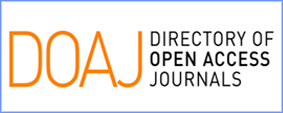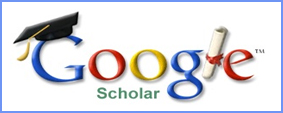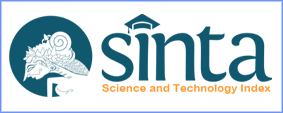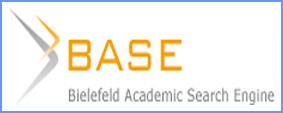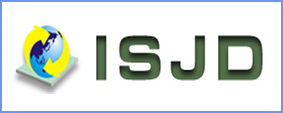Developing Interactive Learning Media of Worksheets based on Geogebra Classroom
Abstract
Technological developments open up opportunities for education to continue to develop, especially during the COVID-19 pandemic, optimal use of technology is necessary. The need for adjustments to the LKPD (student worksheet) which is a learning medium and is an important component in teaching and learning activities to suit the current situation. The results of the observations found that there was no adjustment to this matter. This study aims to develop digital worksheets based on the geogebra classroom on set material, especially set operations. This study uses the DDD-E method with the stages of decide, design, develop and evaluate. The subjects of this research were 32 students of class 7D UM Laboratory Junior High School. The trial process is carried out during class. The digital LKPD (student worksheet) based on the geogebra classroom for set material, especially on set operations, has been developed. The developed learning media has been validated and obtained a media validation score of 3.49 and material validation 3.45 which indicates that this media is valid. The results of the practicality test obtained from the questionnaire distributed to students got a score of 3.24. As for the effectiveness of getting a score of 3.25 and help 78% of all students reach a KKM. This shows that the media developed is both practical and effective. Based on the results of validation, effectiveness and practicality, the developed digital worksheet based on the geogebra classroom can be used to study the topic of set operations. 45 which indicates that this media is valid. The results of the practicality test obtained from the questionnaire distributed to students got a score of 3.24. As for the effectiveness of getting a score of 3.25 and help 78% of all students reach a KKM. This shows that the media developed is both practical and effective. Based on the results of validation, effectiveness and practicality, the developed digital worksheet based on the geogebra classroom can be used to study the topic of set operations. 45 which indicates that this media is valid. The results of the practicality test obtained from the questionnaire distributed to students got a score of 3.24. As for the effectiveness of getting a score of 3.25 and help 78% of all students reach a KKM. This shows that the media developed is both practical and effective. Based on the results of validation, effectiveness and practicality, the developed digital worksheet based on the geogebra classroom can be used to study the topic of set operations.
Keywords
Full Text:
PDFReferences
Ahmad, H., Syamsuddin, Febryanti, & Latif, A. (2021). Development of student worksheets assisted by GeoGebra application in improving higher-order thinking ability in mathematics learning. Journal of Physics: Conference Series, 1882(1), 1–8. https://doi.org/10.1088/1742-6596/1882/1/012048
Astuti, D. P., Leonard, Bhakti, Y. B., & Astuti, I. A. D. (2019). Developing Adobe Flash-based mathematics learning media for 7th-grade students of junior high school. Journal of Physics: Conference Series, 1188(1), 1–14. https://doi.org/10.1088/1742-6596/1188/1/012098
Basuki, W. A., & Wijaya, A. (2019). Students worksheet based on realistic mathematics education: How the effect toward reasoning ability? Journal of Physics: Conference Series, 1157(2), 1–7. https://doi.org/10.1088/1742-6596/1157/2/022130
Gewertz, C. (2020). Exhausted and Grieving: Teaching During the Coronavirus Crisis. Education Week, 39, 6.
Hall, J., & Chamblee, G. (2013). Teaching Algebra and Geometry with GeoGebra: Preparing Pre-Service Teachers for Middle Grades/Secondary Mathematics Classrooms. Computers in the Schools, 30(1–2), 12–29. https://doi.org/10.1080/07380569.2013.764276
Hima, L. R., Nusantara, T., Hidayanto, E., Rahardjo, S., & Murniasih, T. R. (2021). Improving students’ mathematical identity using games as learning media during the Covid-19 pandemic. Journal of Physics: Conference Series, 1882(1), 1–9. https://doi.org/10.1088/1742-6596/1882/1/012088
Hobri, Murtikusuma, R. P., Susanto, Suharto, Oktavianingtyas, E., Putri, I. W. S., … Fausi, A. (2019). Collaborative learning and caring community in mathematics learning by using student’s worksheet based on scientific approach. Journal of Physics: Conference Series, 1211(1), 1–10. https://doi.org/10.1088/1742-6596/1211/1/012108
Horzum, T., & Ünlü, M. (2017). Pre-Service Mathematics Teachers’ Views about GeoGebra and Its Use. Acta Didactica Napocensia, 10(3), 77–90. https://doi.org/10.24193/adn.10.3.8
Hu, X., Chiu, M. M., Leung, W. M. V., & Yelland, N. (2021). Technology integration for young children during COVID-19: Towards future online teaching. British Journal of Educational Technology, 52(4), 1513–1537. https://doi.org/10.1111/bjet.13106
Hussen, S., Setiawani, S., Fatahillah, A., Monalisa, L. A., Albirri, E. R., & Mutrofin, S. (2021). Developing online interactive learning media by using easyclass with geogebra to help students representation mathematic on linear programming. Journal of Physics: Conference Series, 1832(1), 1–12. https://doi.org/10.1088/1742-6596/1832/1/012032
Hwang, D. (2010). Editorial : Shifting from Technology-Enhanced Learning to Technology-Transformed Learning - Best Papers Selected from the Conference APTEL 2010 Gwo-Jen Hwang * Nian-Shing Chen Ju-Ling Shih. 3(3), 306–309.
Kholid, M. N., Hamida, P. S., Pradana, L. N., & Maharani, S. (2020). Students‘ critical thinking depends on their cognitive style. International Journal of Scientific and Technology Research, 9(1).
Krisdiana, I., Masfingatin, T., Murtafiah, W., & Widodo, S. A. (2019). Worksheet-Based Learning Research to Improve Creative Thinking Skills. Journal of Physics: Conference Series, 1254(1), 1–8. https://doi.org/10.1088/1742-6596/1254/1/012054
Ladamay, I., Kumala, F. N., Susanti, R. H., Ulfatin, N., Wiyono, B. B., & Rahayu, S. (2021). Designing and analysing electronic student worksheet based on Kvisoft Flip Book Maker for elementary school student. IOP Conference Series: Materials Science and Engineering, 1098(3), 032028. https://doi.org/10.1088/1757-899x/1098/3/032028
Lu’Luilmaknun, U., Anwar, A., Triutami, T. W., Salsabila, N. H., & Gunawan, G. (2021). Students’ Responses Toward the Use of Technology Learning Media in Mathematics. Journal of Physics: Conference Series, 1933(1), 1–8. https://doi.org/10.1088/1742-6596/1933/1/012076
Lyons, I. M., & Beilock, S. L. (2012). When Math Hurts: Math Anxiety Predicts Pain Network Activation in Anticipation of Doing Math. PLoS ONE, 7(10). https://doi.org/10.1371/journal.pone.0048076
Maharani, S., Nusantara, T., Rahman, A., & Qohar, A. (2019). Analyticity and Systematicity Students of Mathematics Education on Solving Non-routine Problems. Mathematics and Statistics, 7(2), 50–55. https://doi.org/10.13189/ms.2019.070204
Mahayukti, G. A. (2018). The effectiveness of mathematics software aided learning tool with performance assessment on student independence and student learning outcomes. Journal of Physics: Conference Series, 1040(1), 1–9. https://doi.org/10.1088/1742-6596/1040/1/012029
Marbán, J. M., Radwan, E., Radwan, A., & Radwan, W. (2021). Primary and secondary students’ usage of digital platforms for mathematics learning during the COVID-19 outbreak: The case of the Gaza strip. Mathematics, 9(2), 1–21. https://doi.org/10.3390/math9020110
Masniladevi. (2017). T eachers ’ abili ty in using math learning media. 943, 1–6.
Olenev, A. A., Kirichek, K. A., Potekhina, E. V., & Pelikh, O. V. (2020). Capabilities of the Maple computer algebra system in the study of set theory and combinatorics. Journal of Physics: Conference Series, 1691(1), 3–8. https://doi.org/10.1088/1742-6596/1691/1/012097
Prastyo, H. (2020). Kemampuan Matematika Siswa Indonesia Berdasarkan TIMSS. Jurnal Padegogik, 3(2), 111–117.
Qohar, A., Susiswo, Nasution, S. H., & Wahyuningsih, S. (2021). Development of Android-Based Mathematics Learning Game on the Topic of Congruence and Similarity. International Journal of Interactive Mobile Technologies, 15(9), 52–69. https://doi.org/10.3991/ijim.v15i09.20723
Rahman, O., Usman, & Johar, R. (2021). Improving high school students’ critical thinking ability in linear programming through problem based learning assisted by GeoGebra. Journal of Physics: Conference Series, 1882(1), 1–12. https://doi.org/10.1088/1742-6596/1882/1/012070
Sipahutar, H., Harahap, F., Mukhtar, & Nasution, M. Y. (2021). Online Learning in Faculty of Mathematics and Natural Sciences, State University of Medan: Lecturers’ Preferences for Online Learning Media during the Covid-19 Pandemic. Journal of Physics: Conference Series, 1819(1), 1–8. https://doi.org/10.1088/1742-6596/1819/1/012070
Suarsana, I. M., Mahayukti, G. A., Sudarma, I. K., & Pujawan, A. A. G. S. (2019). The Effect of Interactive Mathematics Learning Media toward Mathematical Conceptual Understanding on Probability of Hearing-impaired Students. Journal of Physics: Conference Series, 1165(1), 1–9. https://doi.org/10.1088/1742-6596/1165/1/012021
Tamam, B., & Dasari, D. (2021). The use of Geogebra software in teaching mathematics. Journal of Physics: Conference Series, 1882(1), 1–7. https://doi.org/10.1088/1742-6596/1882/1/012042
Wardono, Waluya, S. B., Mariani, S., & Candra, S. D. (2016). Mathematics Literacy on Problem Based Learning with Indonesian Realistic Mathematics Education Approach Assisted E-Learning Edmodo. Journal of Physics: Conference Series, 693(1), 1–11. https://doi.org/10.1088/1742-6596/693/1/012014
Widodo, S., & Wahyudin. (2018). Selection of Learning Media Mathematics for Junior School Students. Turkish Online Journal of Educational Technology - TOJET, 17(1), 154–160.
Yates, A., Starkey, L., Egerton, B., & Flueggen, F. (2021). High school students’ experience of online learning during Covid-19: the influence of technology and pedagogy. Technology, Pedagogy and Education, 30(1), 59–73. https://doi.org/10.1080/1475939X.2020.1854337
Article Metrics
Abstract has been read : 631 timesPDF file viewed/downloaded: 0 times
DOI: http://doi.org/10.25273/jipm.v11i1.14094
Refbacks
- There are currently no refbacks.
Copyright (c) 2022 JIPM (Jurnal Ilmiah Pendidikan Matematika)

This work is licensed under a Creative Commons Attribution-ShareAlike 4.0 International License.
View JIPM Stats
JIPM indexed by:
Copyright of JIPM (Jurnal Ilmiah Pendidikan Matematika) ISSN 2502-1745 (Online) and ISSN 2301-7929 (Print)





